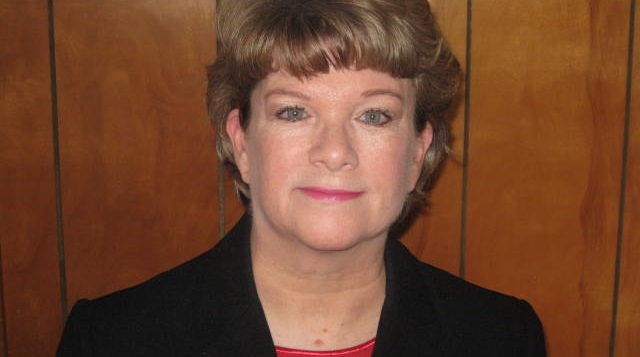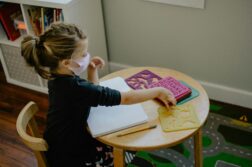My lesbian twin sister died in May of 2019 from Stage IV bone cancer, having delayed going to a doctor for almost a year as she limped around from the pain in her left hip. By the time Eleanor was diagnosed in May 2018, the cancer had spread throughout her body. But my sister just didn’t die from cancer. She died from having lived in the closet for over two decades, refusing to have friends or relationships. And that included me.
It’s hard to pinpoint exactly when my twin sister became so bitter toward life and love. But knowing the facts of our childhood and young adulthood helped me grapple with her death. These facts include our being orphaned at the age of five after the death of our divorced Irish Catholic mother, and Eleanor being molested by our adoptive brother as a teenager. The facts also include how she was widowed shortly before her 21st birthday when her husband was killed in a gasoline explosion; and how she then left Iowa for Oregon with another woman within one year. At the time I didn’t realize that when my sister left Iowa, she was running from overwhelming grief and confusion.
Eleanor and Sally had a good relationship and bought a house in Portland in the mid-1970s. But after five years, Sally left. In her letters, my sister wrote about struggling to keep up the house payments as a single wage earner. The water pipes froze and then burst one hard winter. My sister hadn’t kept heating oil on hand, and the ensuing severe water damage caused financial ruin. Eleanor’s dream of having her own home where she could feel safe and free from haunting memories of childhood sexual abuse was obliterated that winter.
My sister became distant, secretive, and would only allude to past crises in two-sentence pronouncements. Phone calls went unanswered, Christmas and birthdays unacknowledged, and keeping track of her latest address was a challenge. The years turned into decades. My strategy of leaving confrontational voicemail messages seemed the only way to get a reaction out of the woman with whom I’d once shared the same amniotic birth sac.
In retracing my sister’s fragmented life, it was a domestic violence situation that stood out as a red flag. A family death will telescope one’s life, instantly dissolving minutia and crystalizing in time certain events. I don’t know the particulars, but I do know Eleanor was struggling to stay financially afloat in the early 1990’s. It’s possible that either she had a roommate to help with living expenses, or the physical abuse arose from a personal relationship. One of her two-sentence pronouncements had included that she “wasn’t good at relationships,” so she would stop trying.
To my everlasting regret, I never asked more questions about that incident. Frankly, I was too shocked at the time. I didn’t know what to say, so I said nothing. But I do know that it was more than just an incident or a confrontation. It was much worse. My twin sister never told me whether she called the police or if she went to the hospital for any injuries. What would the police have done back in the early to mid-1990s except to judge her? She’d already had years of therapy that took every last cent. Years before, she alluded to how she hadn’t bothered to send me a birthday card because she thought stamps were too expensive.
Now, twenty-some years later I vividly see the ricocheting effects from that abusive situation. Only now do I understand why Eleanor let her weight skyrocket due to her low self-esteem and self-blame. She was using food to stuff herself in a doomed attempt to alleviate the empty feelings she carried around inside. It was also a way to keep people from getting close to her.
While a graduate student at Eastern Washington University in Spokane, I drove down to Portland in the summer of 2001. The fact that Eleanor refused to open the door of her apartment to me is now so telling. It speaks volumes about my sister’s fears of the past, her poverty, her misjudgment of other women, and the shame of continually having a life unraveling at the edges. For my sister, her closet of denial became a self-imposed prison.
It was in October 2018, after tracking down Eleanor’s most recent landlady, that I learned my sister was terminally ill with bone cancer. I was filled with overwhelming grief and regret. Had I ever told her about my learning of Portland’s lesbian legislator, Tina Kotek, who was one of the first to speak out about domestic violence in same-sex relationships? Nonstop urgent calls to social service agencies could not help me break down that closet wall. There were HIPAA privacy laws where a wall of silence greeted me for months as I begged the system for information and help.
Much too late, I learned about such organizations as SAGE (Friendly House’s nonprofit organization), Portland’s Resolution NW, and the Q Center. Resolution NW, which offers mediation services for families and neighborhood disputes, could only leave a message with my sister’s friend, who was the designated “contact person” listed with the hospice care center. Unfortunately, not even Resolution NW could break down that wall and allow me to speak with my sister directly. I had received support and understanding from LGBT organizations during those last eight months, and I realize these organizations would have gladly provided assistance for my sister’s emotional and physical health. If only I’d known about them when I first moved to Portland in 2010.
Sadly, even on her deathbed, Eleanor refused to see or speak with me. I suddenly came to realize that my sister’s complete negation of relationships included me as well. She had kept secret from her employer of five years the fact that she had a twin sister living in Portland. That’s how powerful her denial was. It demonstrates just how desperate she was to keep the door to the past nailed shut. All of the accumulated traumas over the decades from abandonment and abuse were too great. The long-held hope of a renewed bond with my sister died that day in May.

E.M. Birmingham is a freelance writer and author living in Portland, OR.






